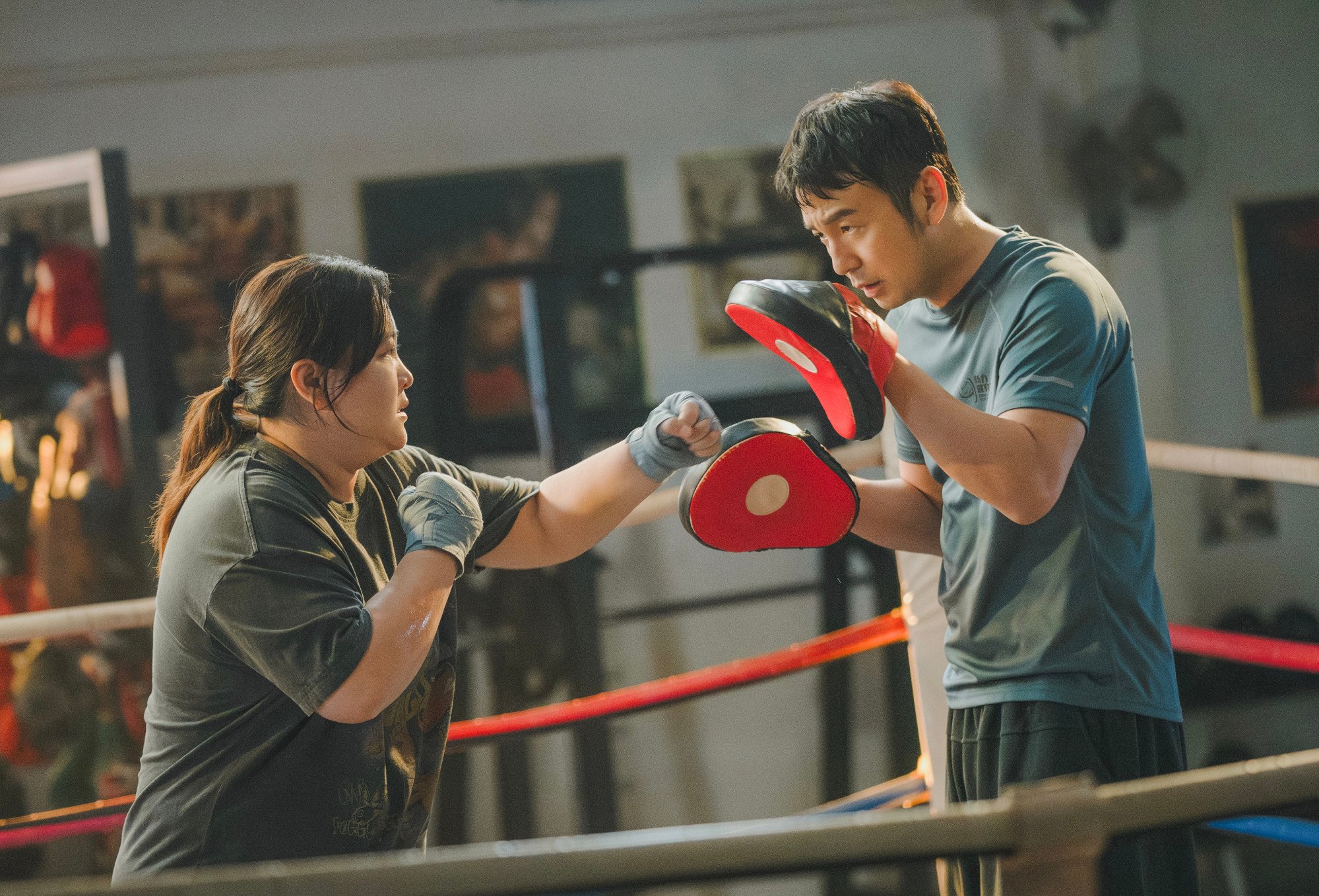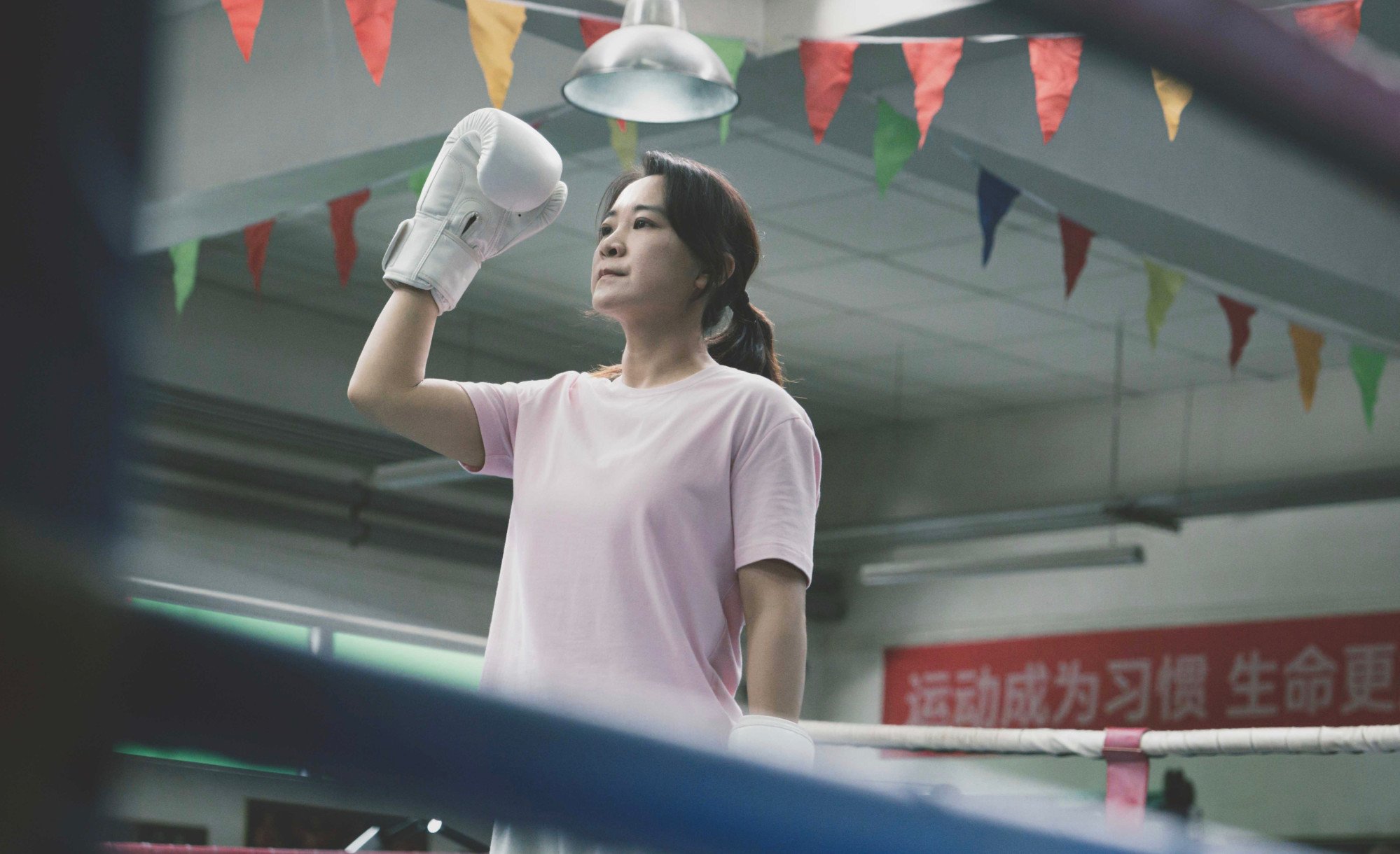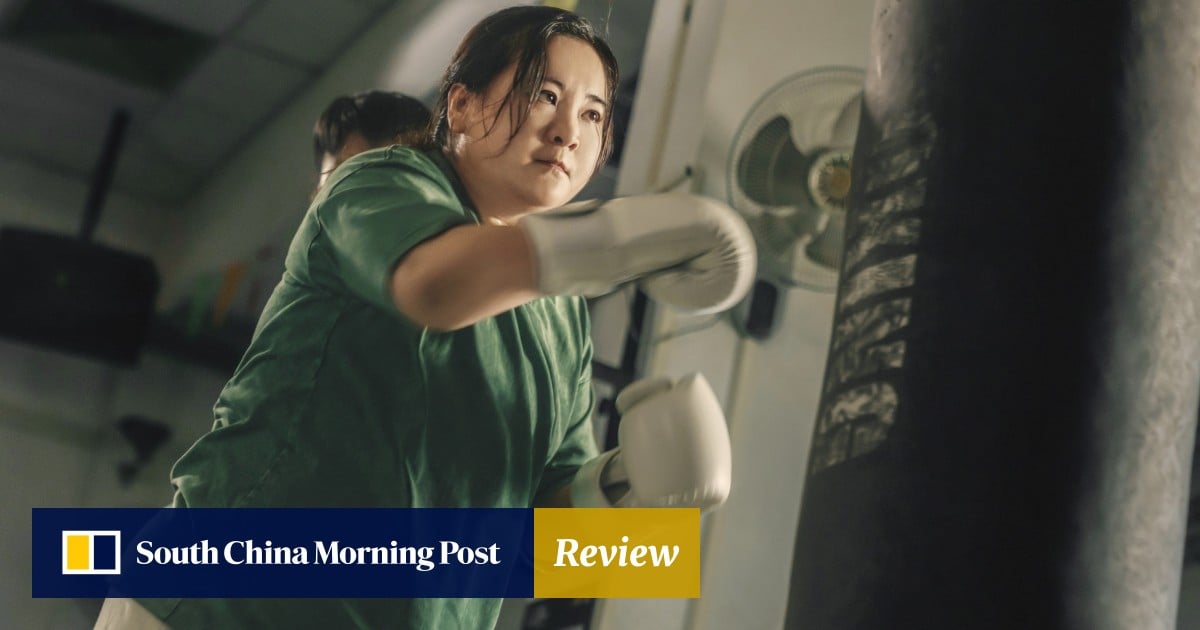3/5 stars
Jia plays the 32-year-old Leying, who still lives with her mother, only prising herself off the couch when it is time to stuff her face.
She hasn’t had a job in a decade and struggles to exert herself around other people.
She has become so introverted and antisocial that her boyfriend (Qiao Shan) is carrying on a secret affair with her best friend (Li Xueqin).
Things come to a head when Leying’s younger sister, Ledan (Zhang Xiaofei), gets divorced and moves back home.
She constantly pesters Leying to sign over an apartment she inherited from their grandmother, but doesn’t use.
She also wants Leying to appear on a reality TV show she produces, so she can get promoted. Eventually, their constant bickering forces Leying to move out.

Getting a job at a barbecue restaurant, Leying crosses paths with ageing boxer Haokun (Lei Jiayin), who trains at the gym next door. She is receptive to his advances, even as she is wary that he may only be recruiting her to become a member, but inevitably they do begin some kind of a relationship, and she becomes curious about learning to box.
For the most part, Yolo manages to retain the inspiring central themes of self-belief and sustained commitment, but Jia’s script expands the narrative of Take’s film to emphasise China’s obsessions with material wealth, media exposure, and get-rich-quick schemes.
It also omits some of the earlier film’s more challenging moments – not least when her character is raped by a co-worker – in favour of a broader, more uplifting tone.

The concerted efforts to make Jia’s reclusive layabout less of a misfit and more sympathetic to mainland Chinese audiences, however, often feel overly contrived and pandering, lessening the impact of Leying’s achievements.
What worked so well in 100 Yen Love was that Ando’s character was not inherently good, nor particularly likeable, but through her personal sacrifices she attained a certain degree of atonement.

